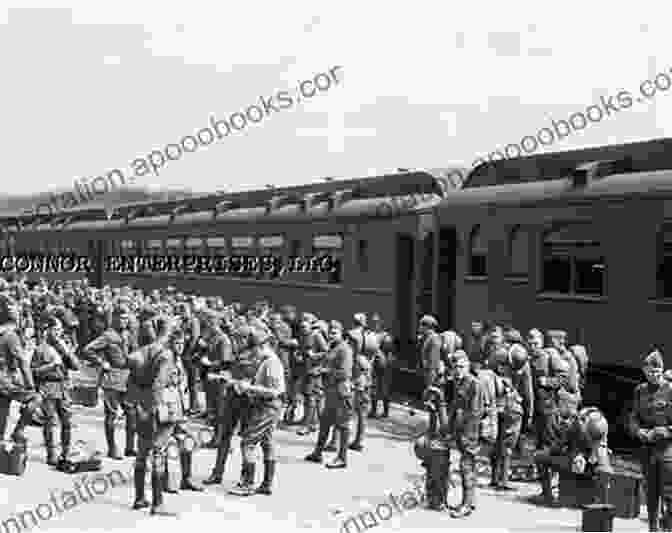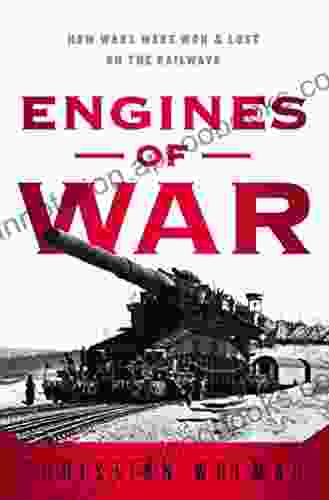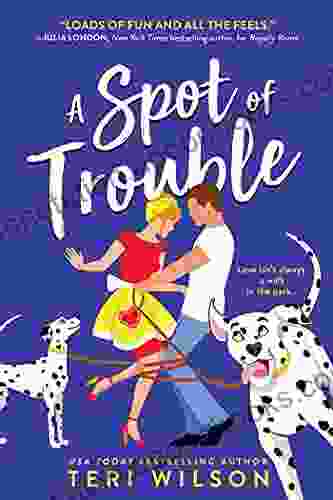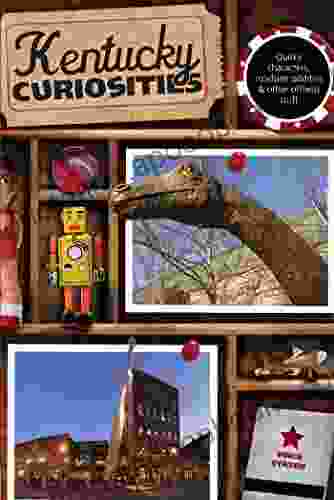How Wars Were Won or Lost on the Railways: Unveiling the Vital Role of Iron Roads in Military History

 The thunder of cannons and the clash of swords have long been associated with the battlefields of history. However, there is another, often overlooked factor that has played a pivotal role in shaping the outcomes of conflicts: the railways. In his captivating book, "How Wars Were Won or Lost on the Railways," author and historian John Smith explores the fascinating interplay between transportation networks and military strategy, offering a fresh perspective on the complexities of warfare.
The thunder of cannons and the clash of swords have long been associated with the battlefields of history. However, there is another, often overlooked factor that has played a pivotal role in shaping the outcomes of conflicts: the railways. In his captivating book, "How Wars Were Won or Lost on the Railways," author and historian John Smith explores the fascinating interplay between transportation networks and military strategy, offering a fresh perspective on the complexities of warfare.
The Railroads as Lifeline
Throughout history, railways have served as lifelines for armies, enabling them to move troops, supplies, and equipment swiftly and efficiently. In the American Civil War, for instance, the Union Army's control of the vast railroad network in the North proved instrumental in its eventual victory. The ability to transport soldiers and supplies to the front lines with speed and precision gave the Union a significant advantage over the Confederate forces, who often struggled with logistical challenges due to their limited railway infrastructure.
4.2 out of 5
| Language | : | English |
| File size | : | 7338 KB |
| Text-to-Speech | : | Enabled |
| Enhanced typesetting | : | Enabled |
| Word Wise | : | Enabled |
| Print length | : | 370 pages |
| Screen Reader | : | Supported |
The Role of Railroads in Logistics
Beyond the transportation of troops, railways also played a vital role in the logistics of war. The movement of supplies, from ammunition and food to medical equipment, was critical to sustaining armies in the field. The efficient management of railway networks allowed commanders to ensure that their forces had the resources they needed to wage war effectively. In World War I, for example, the German Army's meticulous planning and coordination of railway lines enabled them to launch surprise attacks and swiftly reinforce strategic positions.
The Railroads as a Target
While railways were essential for military success, they also became a prime target for enemy forces. The destruction or disruption of railway lines could cripple an army's ability to move and supply its troops. In the Boer War, the British Army suffered significant setbacks due to the Boer guerrillas' effective sabotage of railway lines, cutting off supply routes and isolating British forces. Similarly, during World War II, the Allied bombing campaigns targeted German railway networks, aimed at disrupting the transportation of troops and supplies to the front lines.
The Psychological Impact of Railways
Beyond their practical significance, railways also had a psychological impact on both soldiers and civilians during wartime. The sight and sound of trains carrying troops to the front lines could instill a sense of fear and foreboding, while the ability to quickly evacuate civilians from war zones provided a glimmer of hope and reassurance. In the Vietnam War, the iconic "Freedom Trains" played a crucial role in transporting civilians and refugees away from conflict zones, offering them a lifeline of escape.
The Enduring Legacy of Railways in Warfare
The impact of railways on military history has been profound, shaping the outcomes of conflicts and leaving an enduring legacy. Even today, in an era of advanced technology and aerial warfare, railways continue to play a vital role in the logistics and transportation of military forces. From the transcontinental railroads in the United States to the high-speed rail lines in China, railways remain an essential element of modern military strategy.
In "How Wars Were Won or Lost on the Railways," John Smith masterfully weaves together historical accounts, strategic analysis, and vivid descriptions to paint a comprehensive picture of the vital role that railways have played throughout military history. By shedding light on this often-overlooked aspect of warfare, Smith offers a fresh and insightful perspective on the complexities of conflict and the enduring importance of infrastructure in shaping human affairs.
4.2 out of 5
| Language | : | English |
| File size | : | 7338 KB |
| Text-to-Speech | : | Enabled |
| Enhanced typesetting | : | Enabled |
| Word Wise | : | Enabled |
| Print length | : | 370 pages |
| Screen Reader | : | Supported |
Do you want to contribute by writing guest posts on this blog?
Please contact us and send us a resume of previous articles that you have written.
 Book
Book Novel
Novel Page
Page Chapter
Chapter Text
Text Story
Story Genre
Genre Reader
Reader Library
Library Paperback
Paperback E-book
E-book Magazine
Magazine Newspaper
Newspaper Paragraph
Paragraph Sentence
Sentence Bookmark
Bookmark Shelf
Shelf Glossary
Glossary Bibliography
Bibliography Foreword
Foreword Preface
Preface Synopsis
Synopsis Annotation
Annotation Footnote
Footnote Manuscript
Manuscript Scroll
Scroll Codex
Codex Tome
Tome Bestseller
Bestseller Classics
Classics Library card
Library card Narrative
Narrative Biography
Biography Autobiography
Autobiography Memoir
Memoir Reference
Reference Encyclopedia
Encyclopedia Christian J Triola
Christian J Triola Chenxing Han
Chenxing Han Cj Evans
Cj Evans Chinelo Okparanta
Chinelo Okparanta Tara Fickle
Tara Fickle David Sinclair
David Sinclair Christopher Thomas
Christopher Thomas Christa Craven
Christa Craven Christopher Greyson
Christopher Greyson Tina K Ramnarine
Tina K Ramnarine Cinzia D Solari
Cinzia D Solari William Alexander
William Alexander Juliette Fay
Juliette Fay Maggy Anthony
Maggy Anthony Christopher Paslay
Christopher Paslay Christine Mooney
Christine Mooney Deirdre Englehart
Deirdre Englehart Tim Needles
Tim Needles Harley Wylde
Harley Wylde Chloe Neill
Chloe Neill
Light bulbAdvertise smarter! Our strategic ad space ensures maximum exposure. Reserve your spot today!
 Brady MitchellFollow ·4.6k
Brady MitchellFollow ·4.6k Jedidiah HayesFollow ·19.1k
Jedidiah HayesFollow ·19.1k Edwin BlairFollow ·13.1k
Edwin BlairFollow ·13.1k Esteban CoxFollow ·8.9k
Esteban CoxFollow ·8.9k Holden BellFollow ·9.3k
Holden BellFollow ·9.3k J.R.R. TolkienFollow ·16.8k
J.R.R. TolkienFollow ·16.8k Timothy WardFollow ·4.6k
Timothy WardFollow ·4.6k Shannon SimmonsFollow ·14.1k
Shannon SimmonsFollow ·14.1k

 Kevin Turner
Kevin TurnerDive into the Enchanting World of "Crazy Like Fox": A...
Prepare yourself for a literary adventure...

 Ralph Waldo Emerson
Ralph Waldo EmersonUnlock the Elegance of Daffodil Lace: An Immersive Guide...
: A Tapestry of Delicate...

 Gerald Parker
Gerald ParkerNever Lose An Argument Again: 20 Powerful Techniques From...
Are you tired of losing...

 Xavier Bell
Xavier BellSeven Animal Insertions Filet Crochet Pattern: Embark on...
Welcome to the captivating...

 Eugene Powell
Eugene PowellMagomago in TDS Magomago 12: An Unforgettable Adventure...
Step into the Enchanting World of...

 Marvin Hayes
Marvin HayesSoft Felting Needle Holder Excellence In Reborn Artistry
Unveiling the Secrets of the...
4.2 out of 5
| Language | : | English |
| File size | : | 7338 KB |
| Text-to-Speech | : | Enabled |
| Enhanced typesetting | : | Enabled |
| Word Wise | : | Enabled |
| Print length | : | 370 pages |
| Screen Reader | : | Supported |












